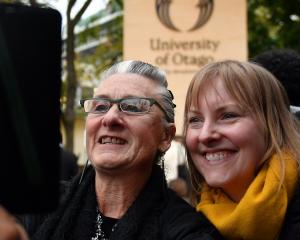Since Covid-19 arrived in New Zealand, members of Parliament continue to be subjected to increasing amounts of "disturbing" abuse, including death threats, threats of sexual violence and even actual physical violence.
University of Otago research shows 53 of the 54 MPs (98%) who participated in its study had experienced abuse from members of the public during the Covid-19 pandemic and recovery.
Lead author and University of Otago (Wellington) professor of psychological medicine Susanna Every-Palmer said compared with a similar study in 2014, all forms of harassment had increased significantly.
The harassment experienced had significant psychosocial costs and required a multi-pronged response.
"Most MPs reported experiencing abuse related to the government response to the Covid-19 pandemic, such as lockdowns and vaccine mandates.
"Many of them commented that the frequency and intensity of abuse increased markedly during the pandemic and had not subsequently abated.
"Disturbingly, women were at significantly higher risk of certain types of social media harassment, including gendered abuse, sexualised comments, threat of sexual violence, and threats toward their family."
Of the participants, 96% had been harassed over social media, which included threats of physical violence (40%), sexual violence (14%), threats made towards MPs’ family members (19%), threats towards staff (12%), and death threats (27%), she said.
MPs said much of the online harassment was racist, misogynistic, and extreme-right rhetoric, leaving them fearing they or someone close to them might be attacked, seriously hurt or killed.
It also left them feeling like they had inadequate support because resources were not keeping pace with the changing landscape.
Co-author and forensic psychiatrist Dr Justin Barry-Walsh said a great deal of harm arose in the context of the unreasonable and harmful harassment.
"It raises the spectre of erosion of our democracy by continuation of such harassment, particularly towards women MPs.
"The research highlights the importance of having a systemic and effective response to this issue, including the need to adapt to a changing threat landscape and possible legislative change.
"Having a cohesive approach to these threats is valuable, with the Parliamentary Service, police and mental health organisations working together."
It was not enough to simply monitor and report on this issue, he said.
Prof Every-Palmer said she hoped the study provided politicians with permission to acknowledge the extent of the difficulties they might face, and to appropriately seek support and assistance for themselves and their staff when they were subject to harassment.
"We hope this means MPs will not play down the significance and harm that arises from harassment."












